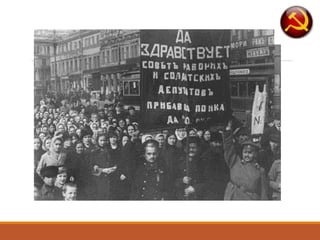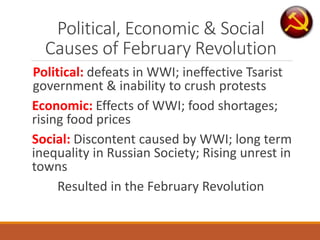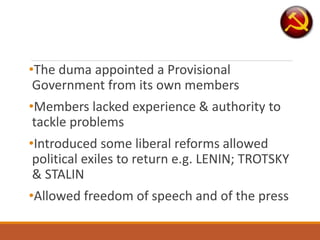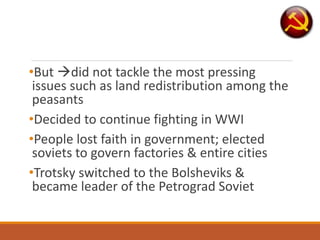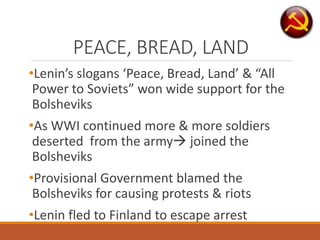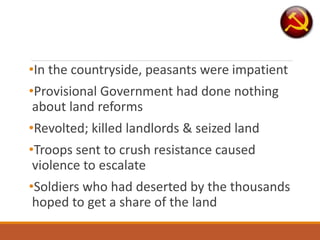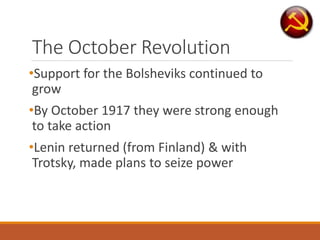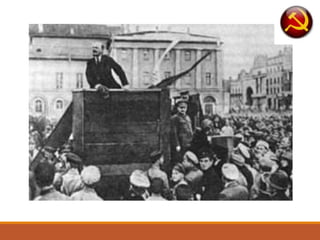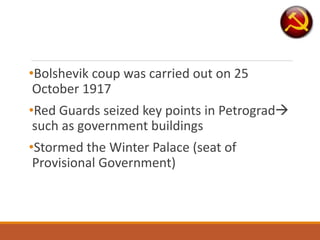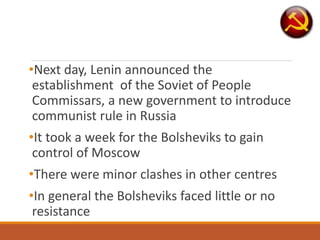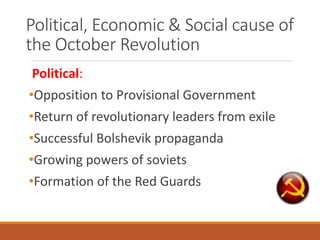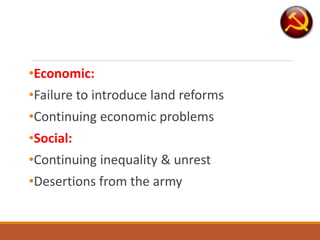The document provides background information on communism and the Russian Revolution. It discusses Karl Marx's philosophy of communism and how it influenced Lenin and the Bolsheviks. It then summarizes the key events of the 1905 Russian Revolution, World War 1, the February Revolution of 1917 which overthrew the Tsar, and the October Revolution later in 1917 where the Bolsheviks seized power under Lenin and established Soviet rule.
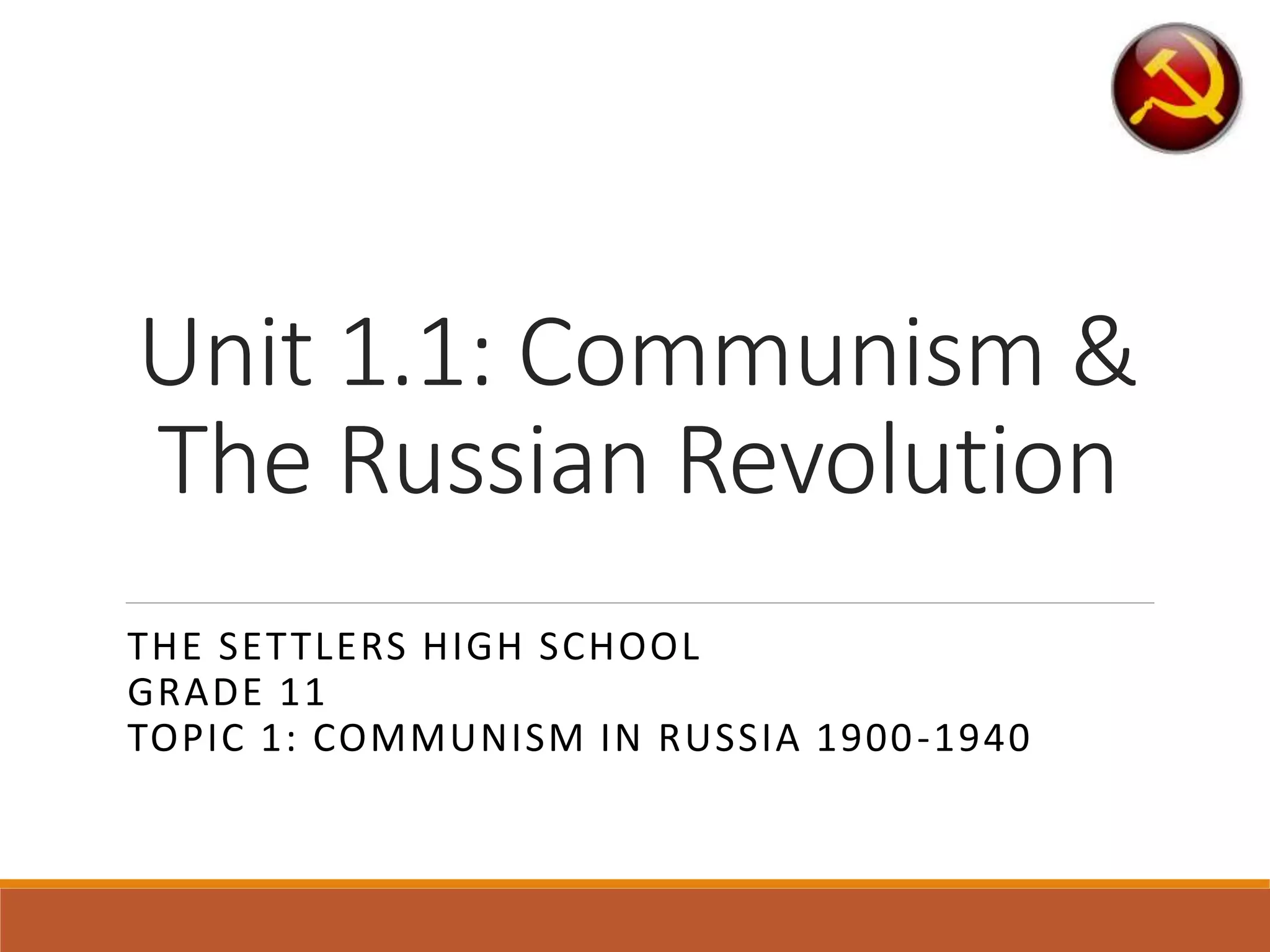
![How was communism applied
in Russia under Lenin & Stalin?
•20th century communism & capitalism
•Idea that the working classes would
overthrow capitalism & create a communist
society –[ Karl Marx 19th century philosopher]](https://image.slidesharecdn.com/1-190227083259/85/1-1-communism-2-320.jpg)
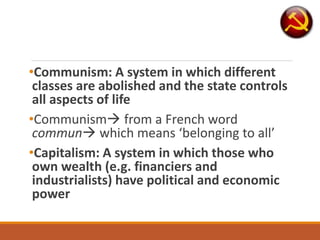
![What is Communism?
•Ideas of communism were developed during
the Industrial Revolution (19th century)
•IR resulted in a large gap in wealth between
a small number of rich people & the majority
of people who were poor
•Capitalism the economic system that
developed during industrialisation
•[adopted in Western Europe & North
America]](https://image.slidesharecdn.com/1-190227083259/85/1-1-communism-4-320.jpg)
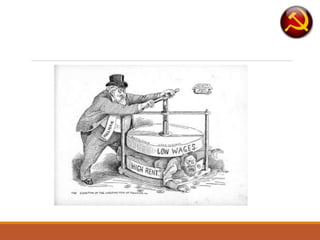
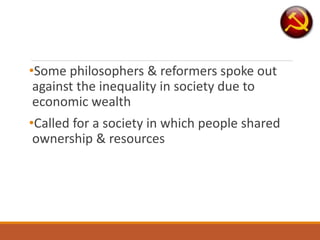
![• would result in a fairer place:
•Reduce divisions in society; lead to
cooperation vs competition & conflict
•Suggested an alternative form of
government
•Socialism [a system in which all classes have
equal opportunities] or communism](https://image.slidesharecdn.com/1-190227083259/85/1-1-communism-7-320.jpg)
![Key features of the theory of
communism:
•Resources [land, mines, factories, etc.] are
owned by the state; on behalf of the
people; no private ownership; all profits
used for the benefit of society as a whole
•Greater equality; no class divisions caused
by an unequal spread of wealth](https://image.slidesharecdn.com/1-190227083259/85/1-1-communism-8-320.jpg)
![•Government control of the economy [all
decisions to be centrally planned by it]
•Housing, medical services, the education
system, and all social services provided free
by the state
•Equality & common good are valued more
than individual freedom](https://image.slidesharecdn.com/1-190227083259/85/1-1-communism-9-320.jpg)
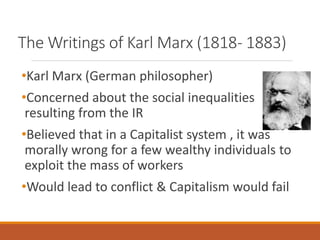
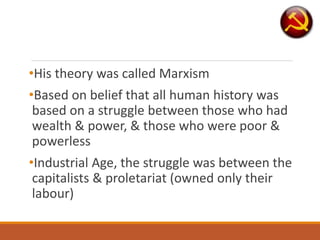
![•Marx believed- that the proletariat would
have to use an armed revolution to bring
about change
•Workers would then establish a
‘dictatorship of the proletariat’
•[inflexible government control by the former
working class]](https://image.slidesharecdn.com/1-190227083259/85/1-1-communism-12-320.jpg)
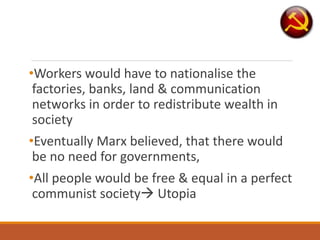
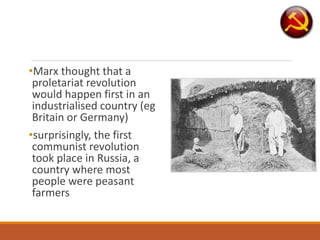
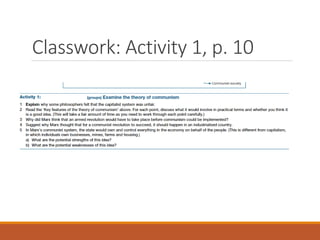
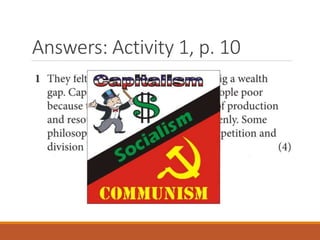
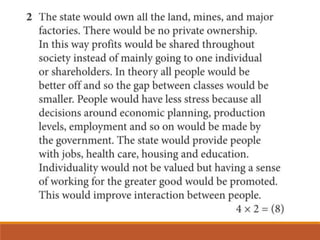
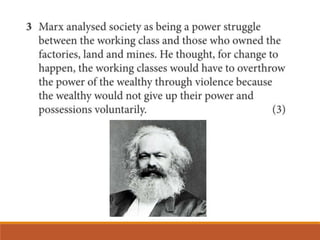
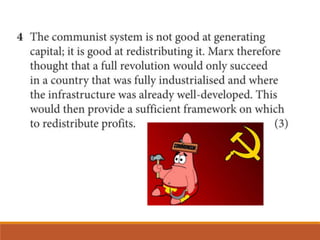
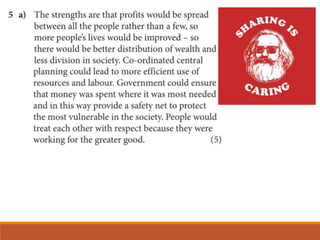
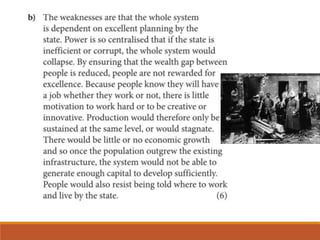
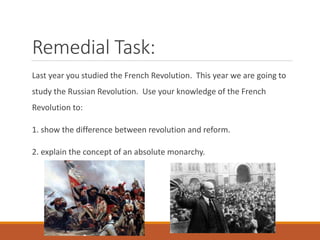
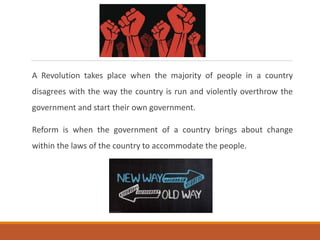
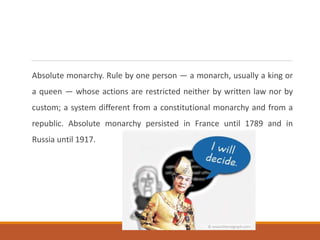
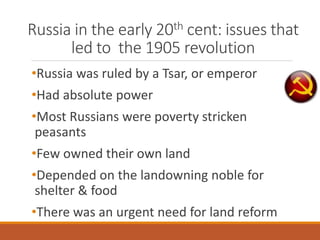
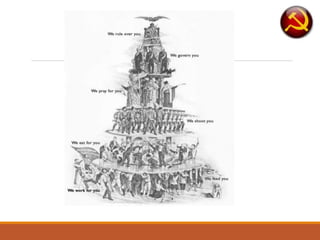
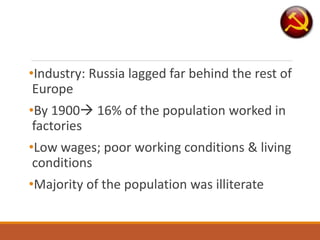
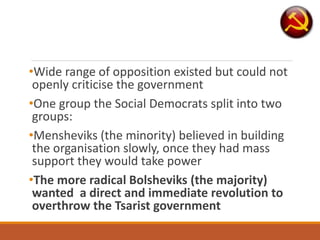
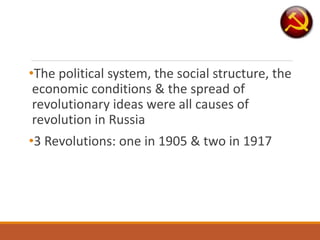
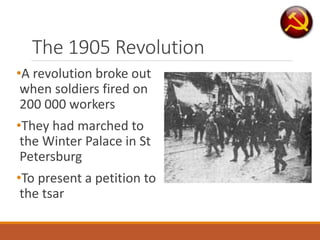
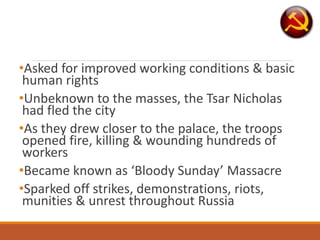
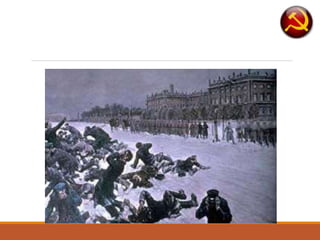
![•Workers in St Petersburg formed the first
soviet [a council formed by workers as an
alt form of government] to organise the
protests and put together workers’
demands
•Armed forces remained loyal to the Tsar
•Tsar responded by closing down the soviet
•Established the first duma [ parliament]](https://image.slidesharecdn.com/1-190227083259/85/1-1-communism-33-320.jpg)
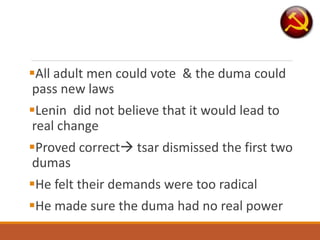
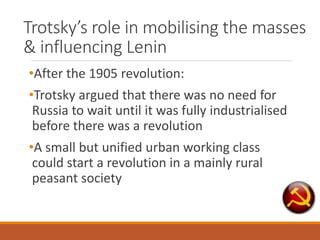
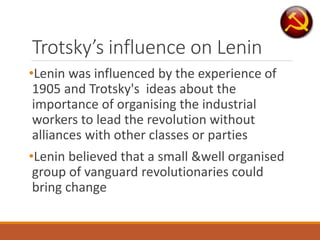
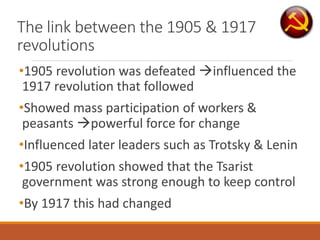
![WWI [1914] led to the downfall of the tsar](https://image.slidesharecdn.com/1-190227083259/85/1-1-communism-38-320.jpg)
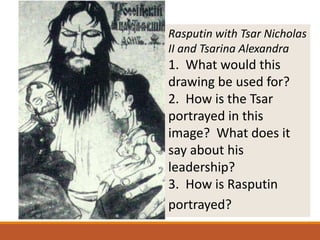
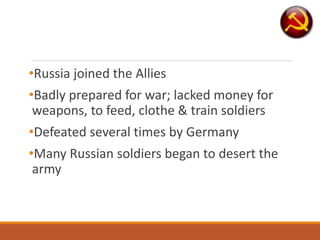
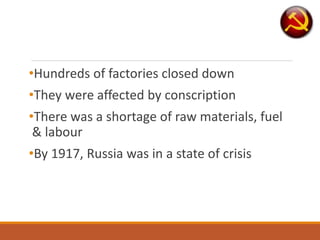
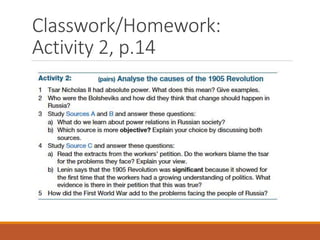

![The February Revolution
•February 1917 unemployment, rising prises
& food shortages
•Led to demonstrations in the capital,
Petrograd [new name for St Petersburg]
•Soldiers sent to crush the protests openly
supported the demonstrators
•Tsar was persuaded to abdicate by his
ministers and generals](https://image.slidesharecdn.com/1-190227083259/85/1-1-communism-44-320.jpg)
